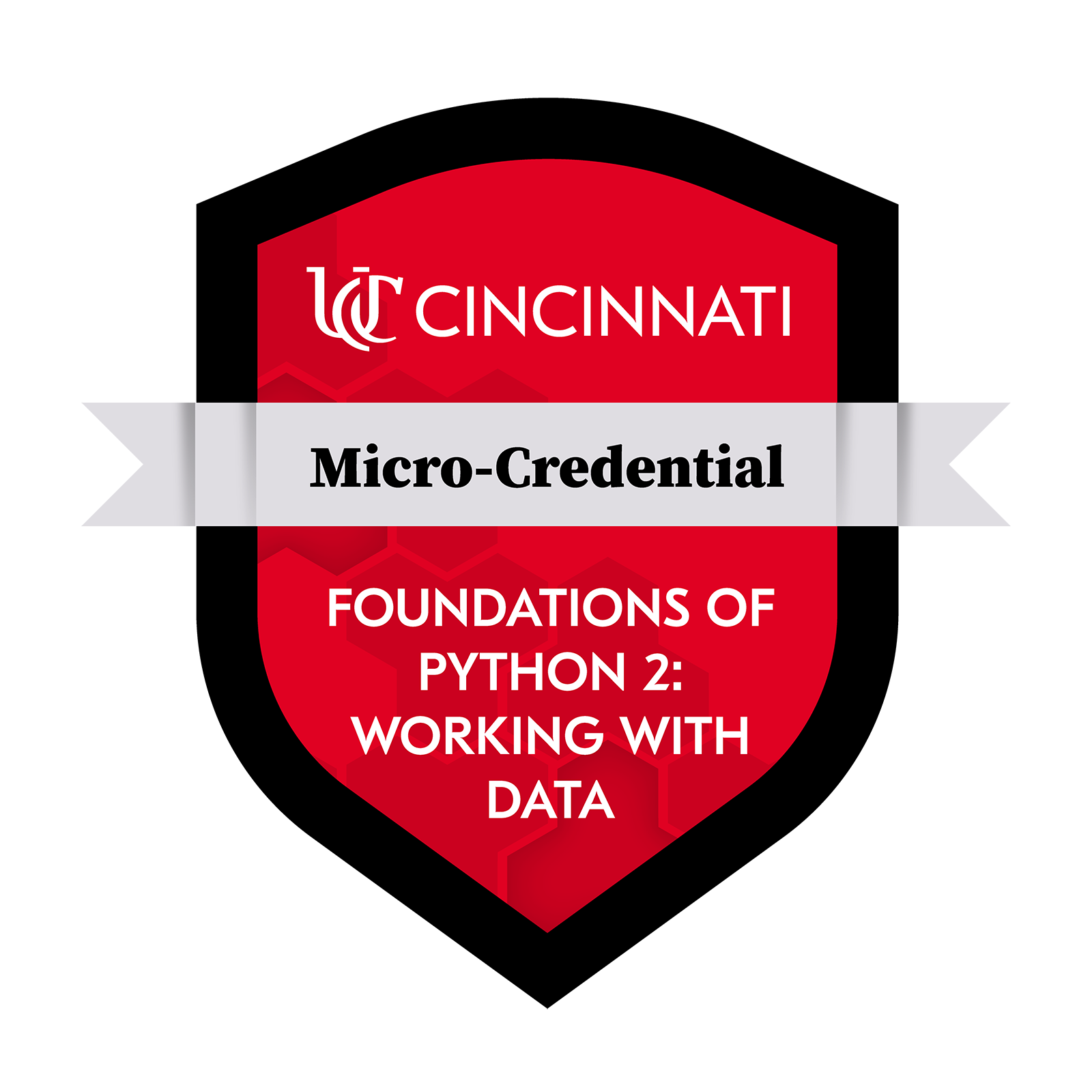CE-88PA1002X - Foundations of Python 2: Working with Data
Course Description
This course, The Foundations of Python 2: Working with Data, is an on-demand, asynchronous Canvas course designed for individuals with basic Python knowledge who want to advance their data analysis skills. This intermediate course builds upon fundamental Python concepts to introduce essential data science techniques using industry-standard libraries. Structured in three modules, participants will master data manipulation with the Pandas library in the first module, learning to work with and manipulate dataframes. The second module focuses on data visualization using the matplotlib, pandas, and seaborn libraries to create simple and elaborate charts and plots. The third module covers regression analysis for prediction and forecasting, utilizing NumPy, scikit-learn, and statsmodels to build simple and multiple linear regression models. Throughout the course, participants will continue using Google Colab as their cloud-based development environment, ensuring practical application of data science concepts.
Prior completion of Foundations of Python or equivalent Python experience is strongly recommended.
Learners who successfully complete this course may earn the following micro-credential:

Course Outline
This course focuses on the following modules:
-
Module 1: Working with and manipulating dataframes
-
Module 2: Creating simple and advanced charts and plots through data visualization
-
Module 3: Applying regression analysis for prediction and forecasting
Learner Outcomes
Learners who complete this course can expect the following outcomes:
•Data Manipulation: Gain familiarity with the Pandas library to work with dataframes, including basic slicing, indexing, querying, and statistical operations on datasets.
•Data Visualization: Learn to create visual representations of data using matplotlib, pandas, and seaborn libraries to display insights and patterns.
•Statistical Analysis: Apply grouping, aggregation, and statistical functions to analyze and summarize datasets for interpretation.
•Regression Analysis: Build simple and multiple linear regression models using NumPy, scikit-learn, and statsmodels for basic prediction and forecasting tasks.
Who Should Register?
This course is for learners curious about the statistical and data-driven applications of the Python programming language. Designed for those eager to gain more hands-on experience working with data, it is best suited for participants who have completed the Foundations of Python course or have equivalent experience.
University of Cincinnati Libraries
The mission of UC Libraries is to empower discovery, stimulate learning, and inspire the creation of knowledge by connecting students, faculty, researchers, and scholars to dynamic data, information, and resources. The Libraries strive to be a progressive, creative, and dynamic organization that is recognized as a model provider of access to premier library collections, expertise, and quality service.
A founding member of the Association of Research Libraries, UC Libraries offers access to an outstanding research library collection of over 4.5 million volumes, 1.9 million e-books, over 150,000 serial subscriptions, and thousands of full-text articles online, in addition to a wide range of services to help faculty, students, and scholars with their research needs.
UC Libraries include the central Walter C. Langsam Library, plus nine college and departmental libraries that provide specialized service and collaboration with faculty, researchers, and students across the university.
